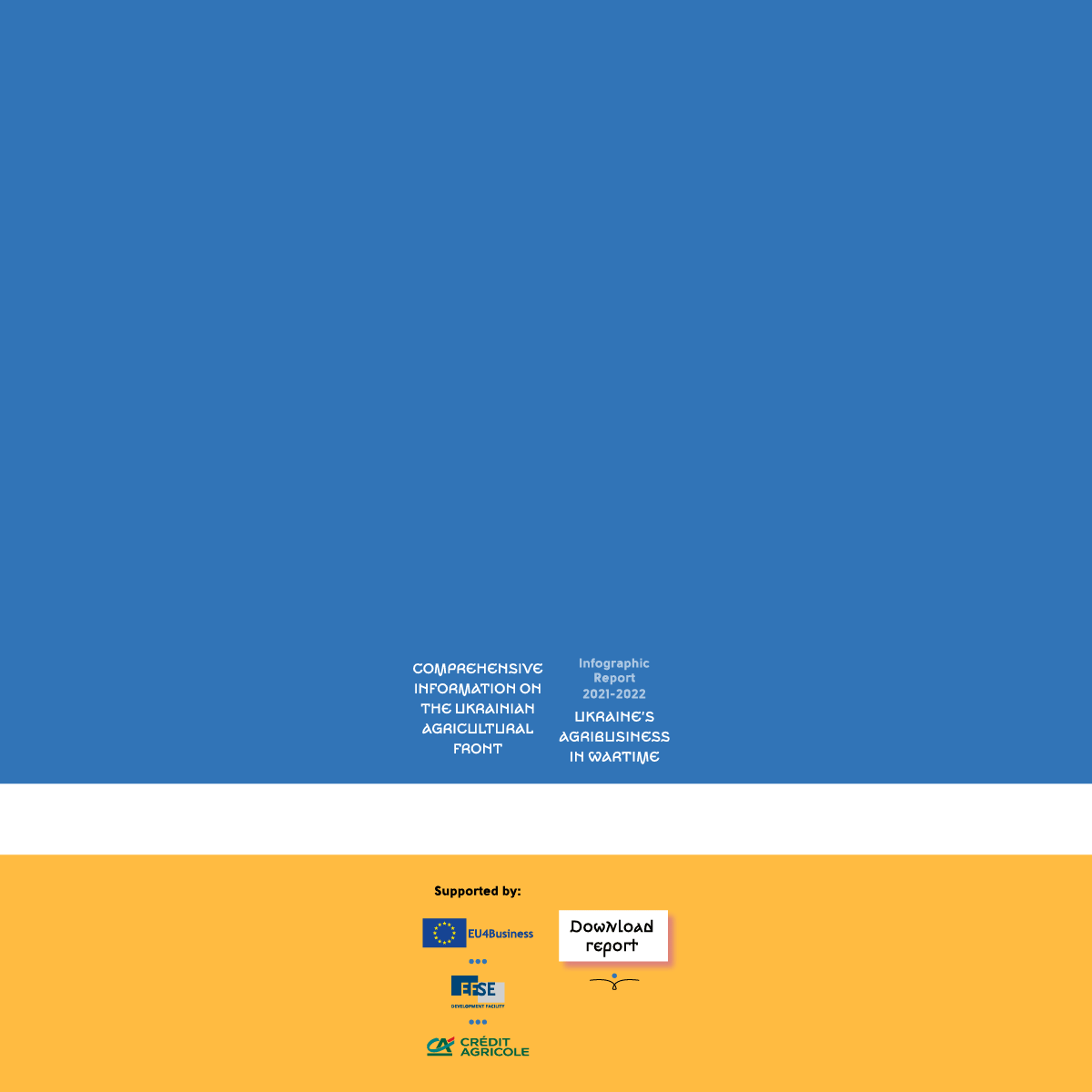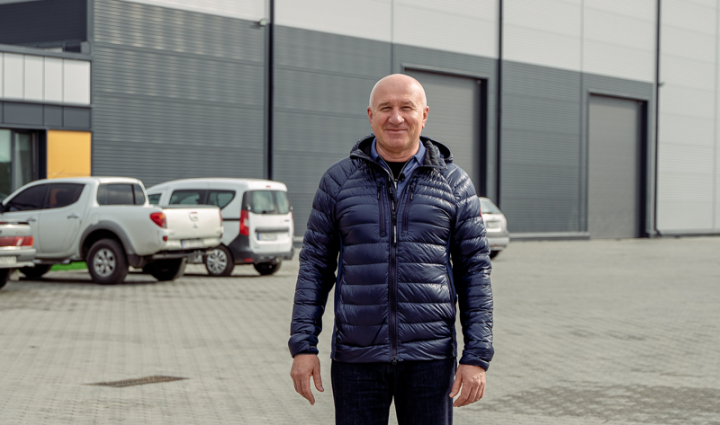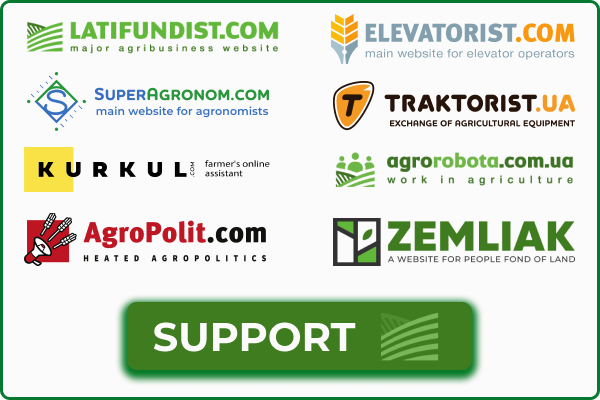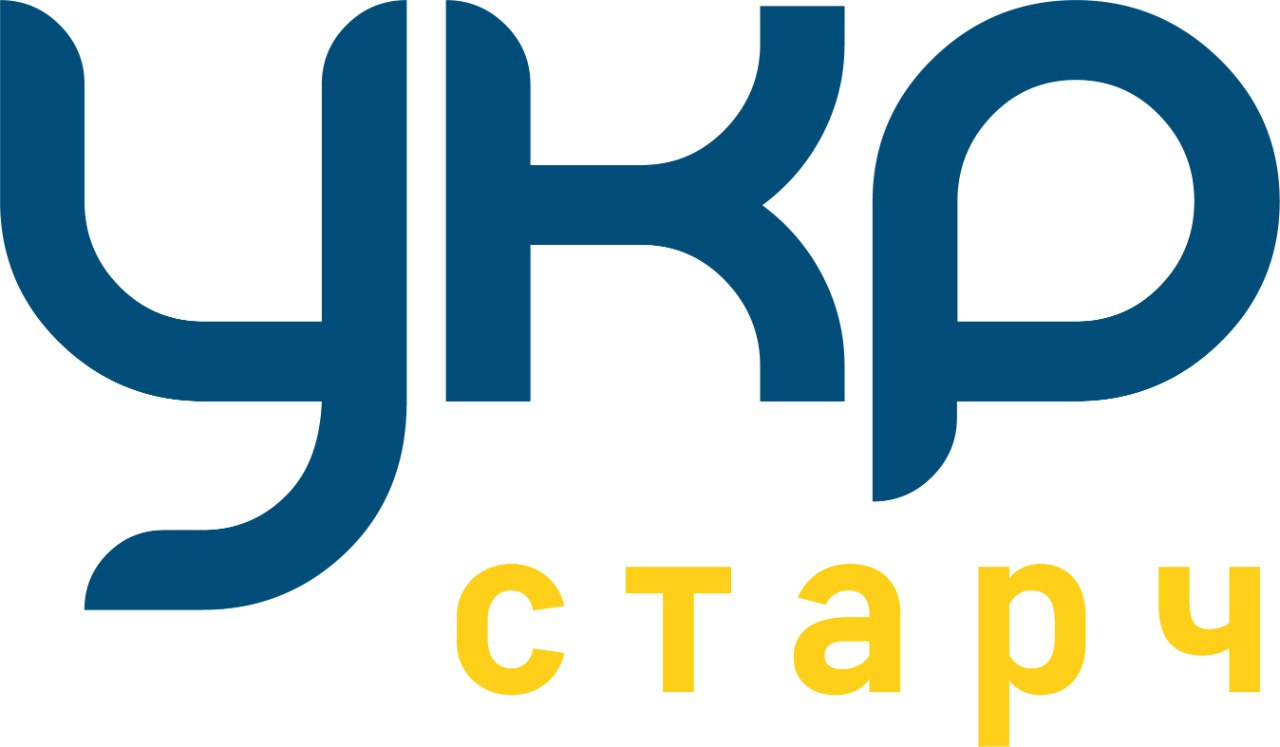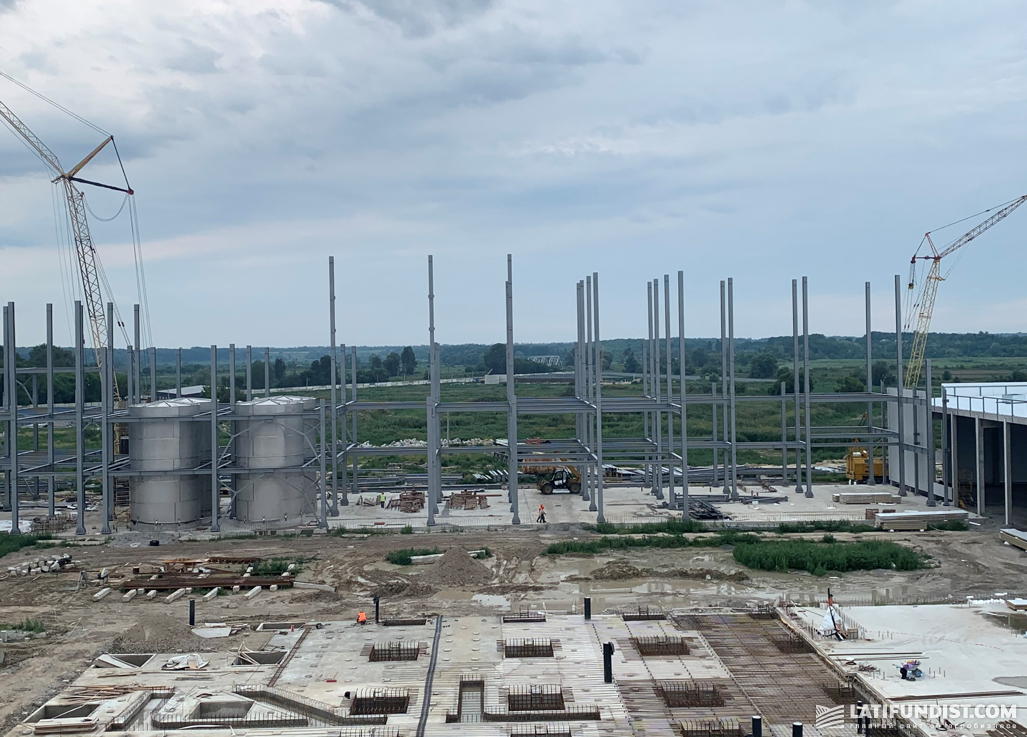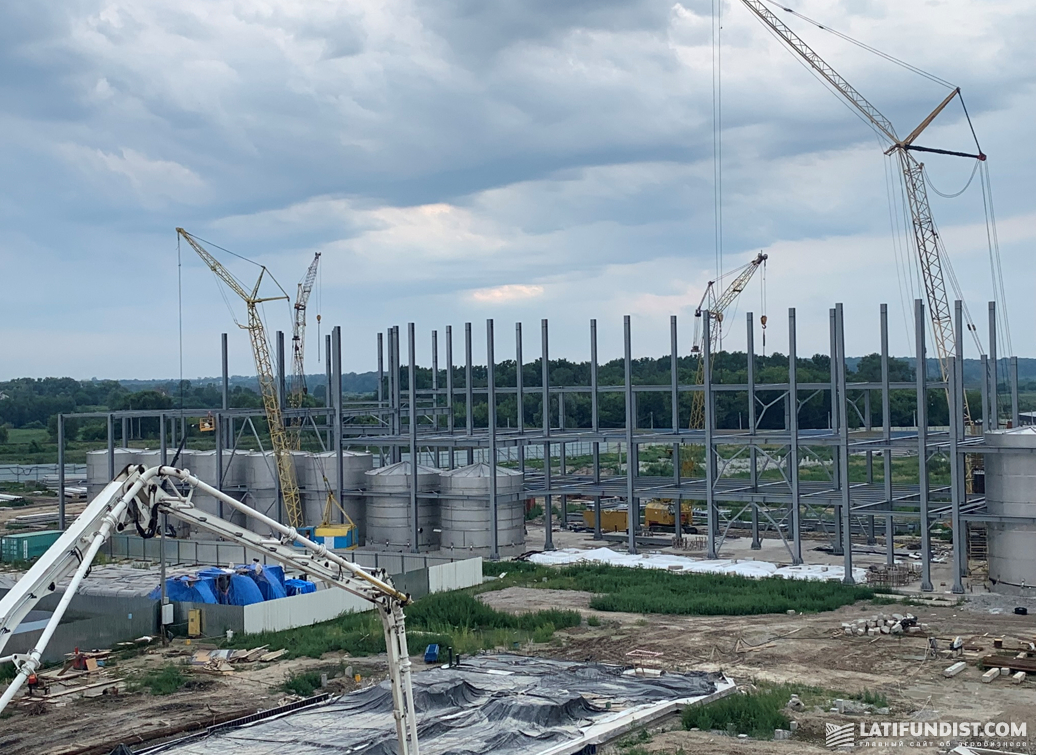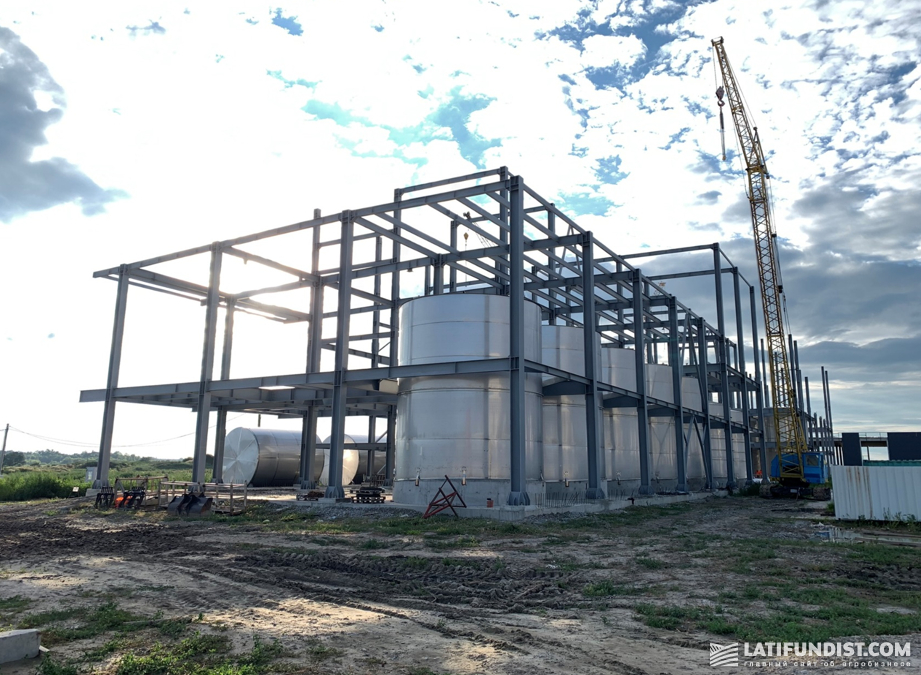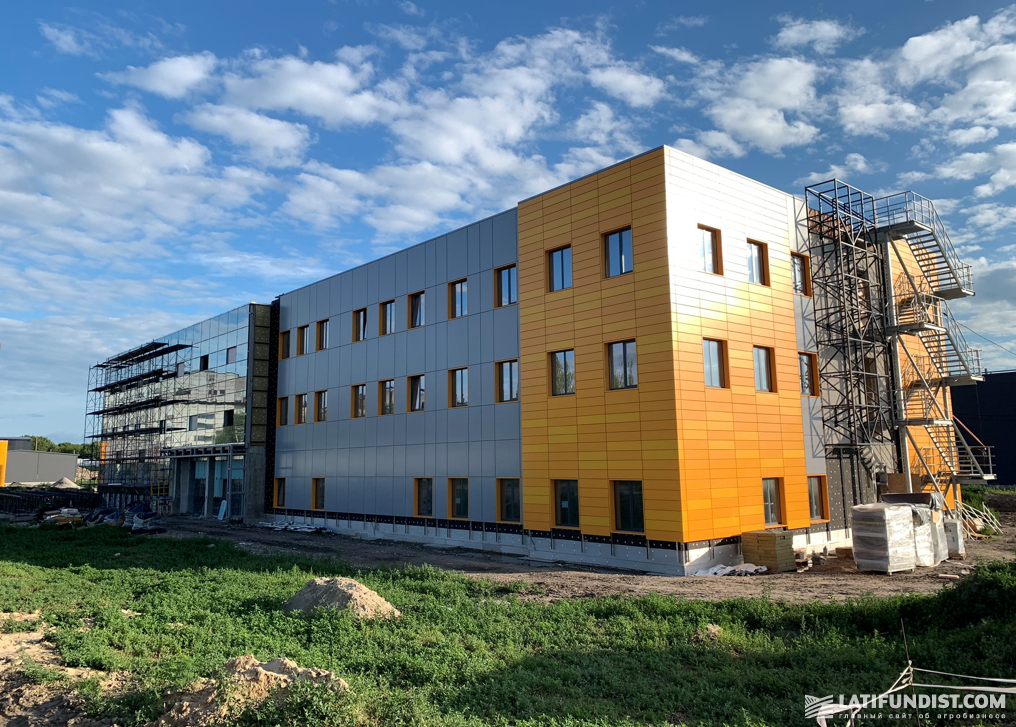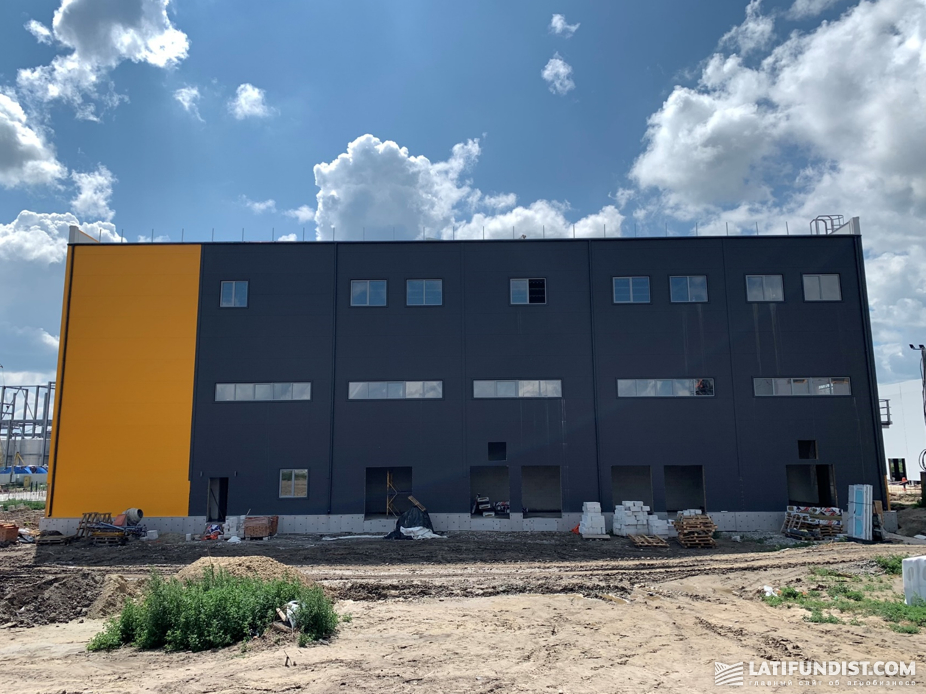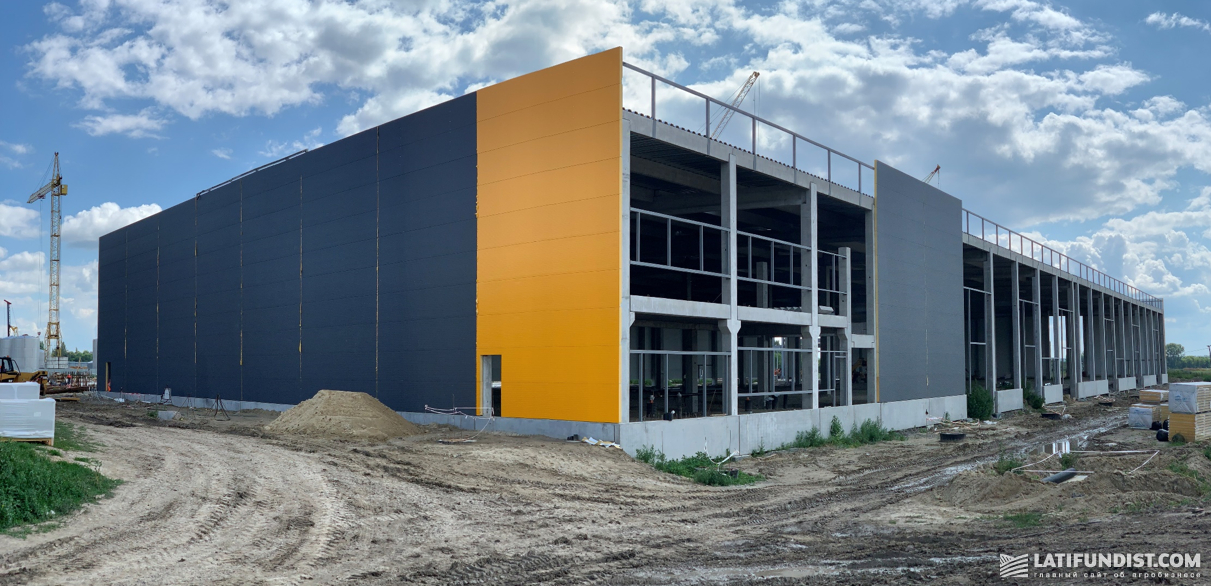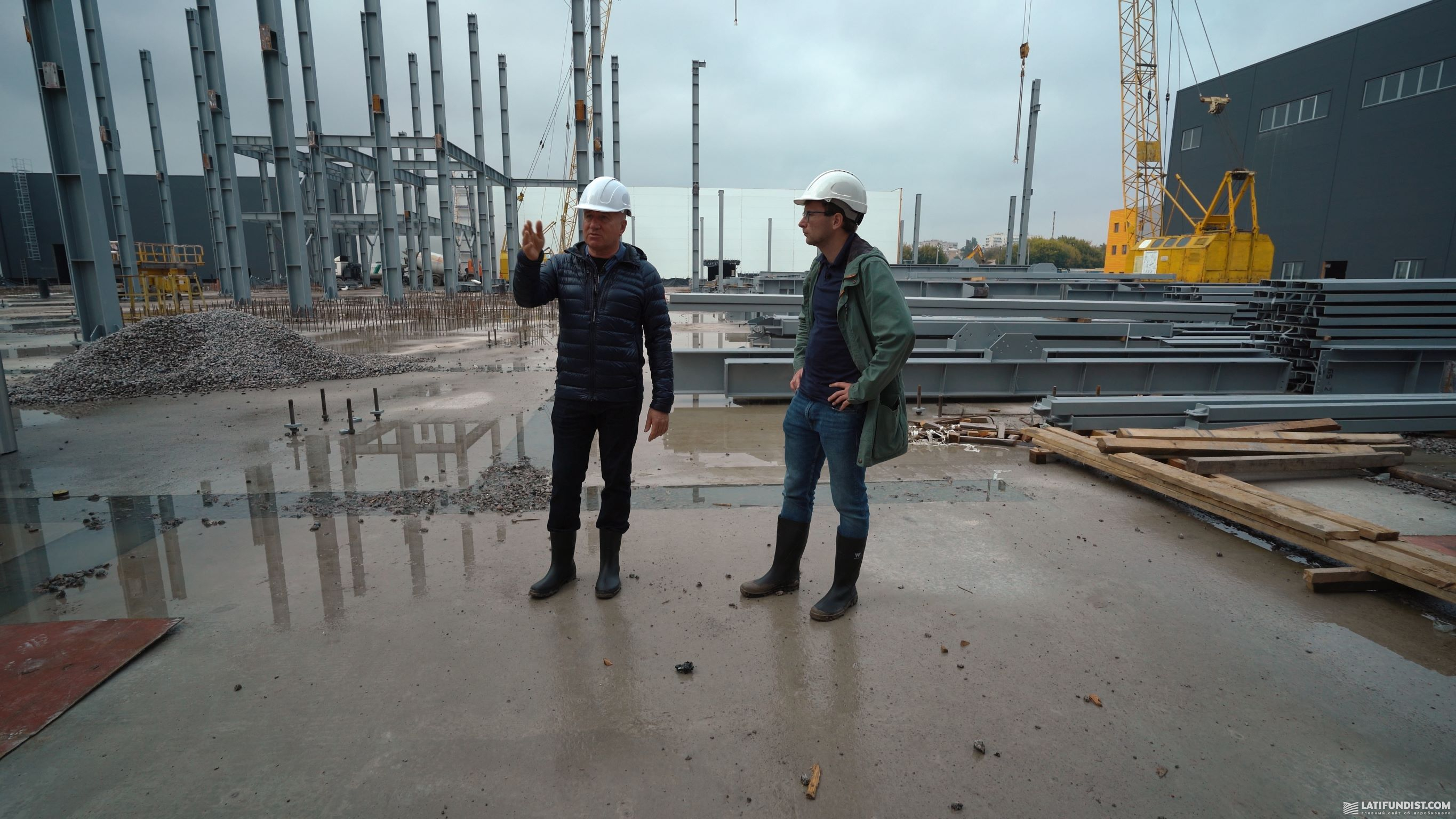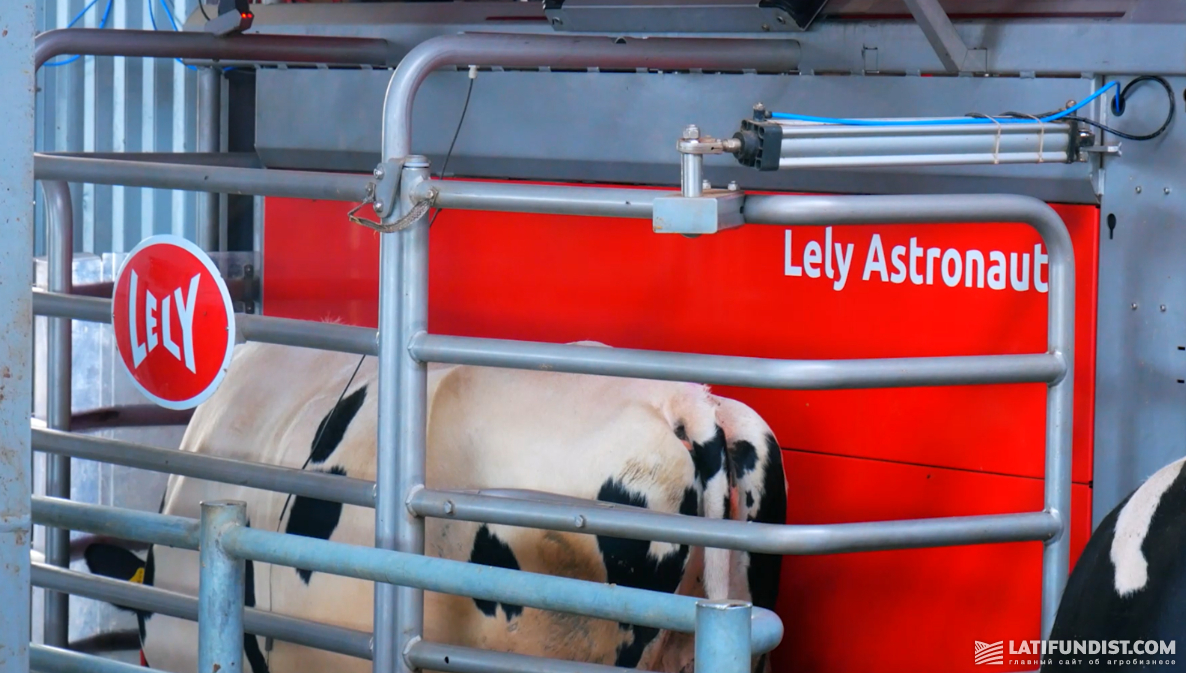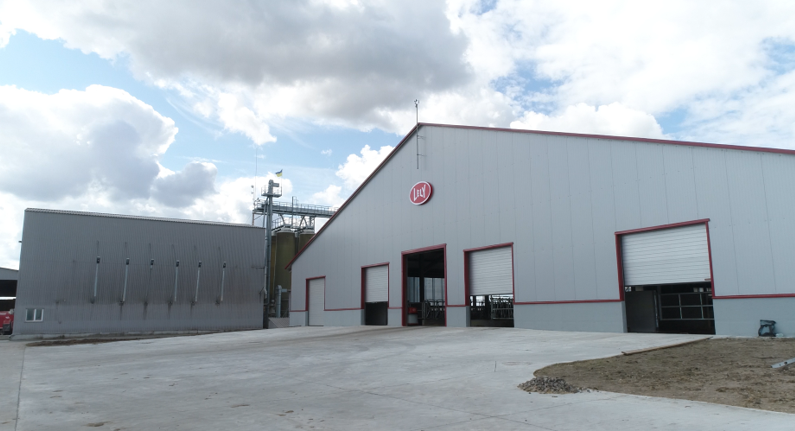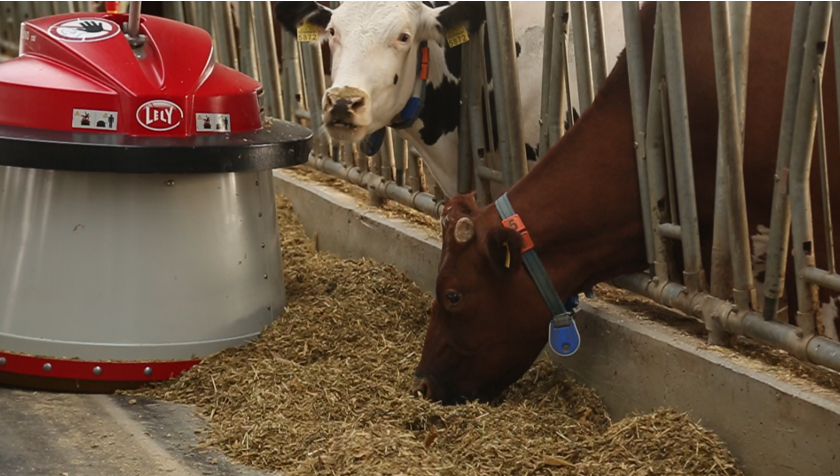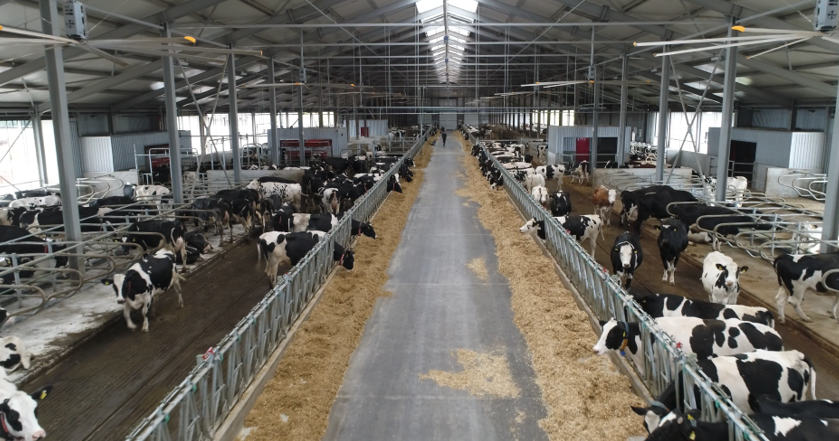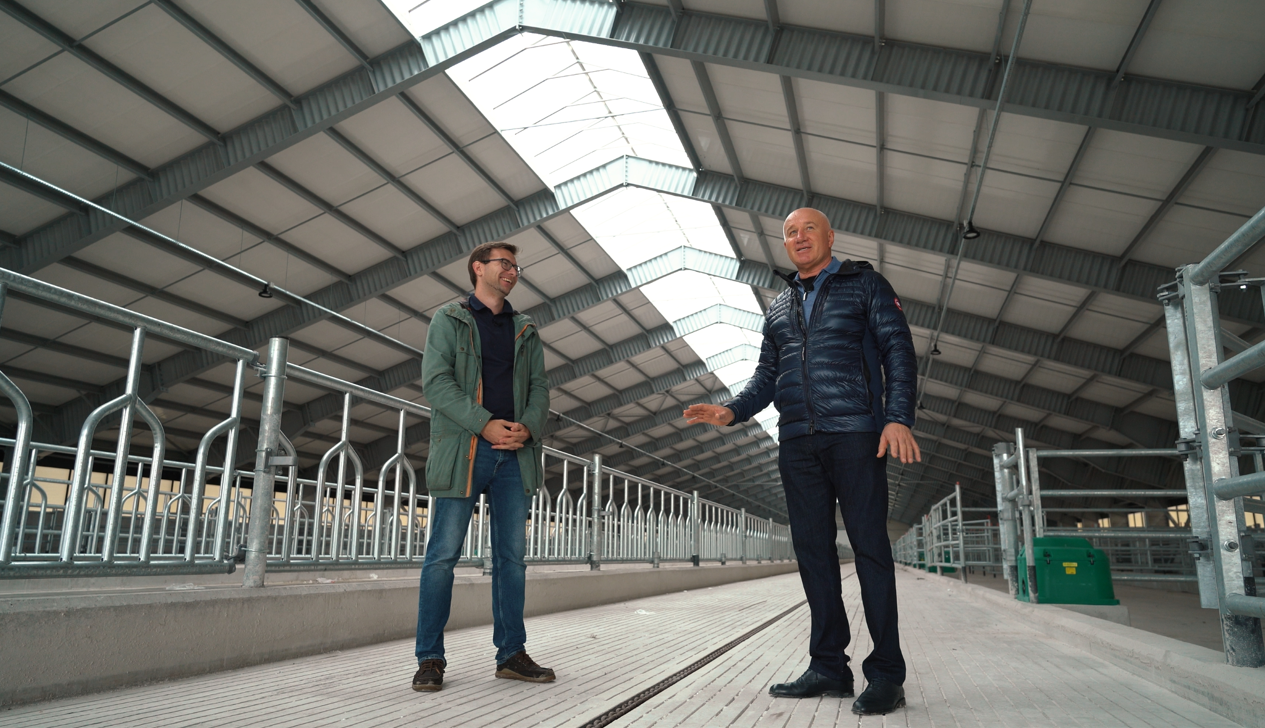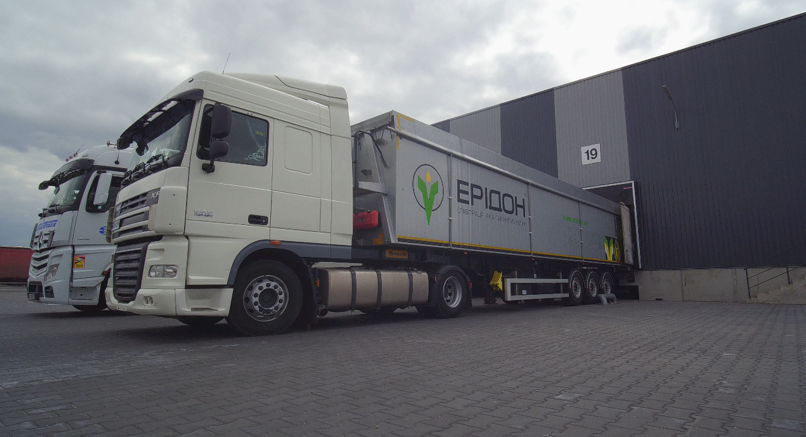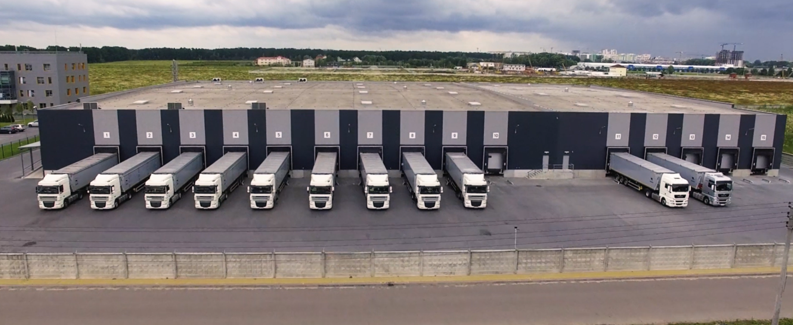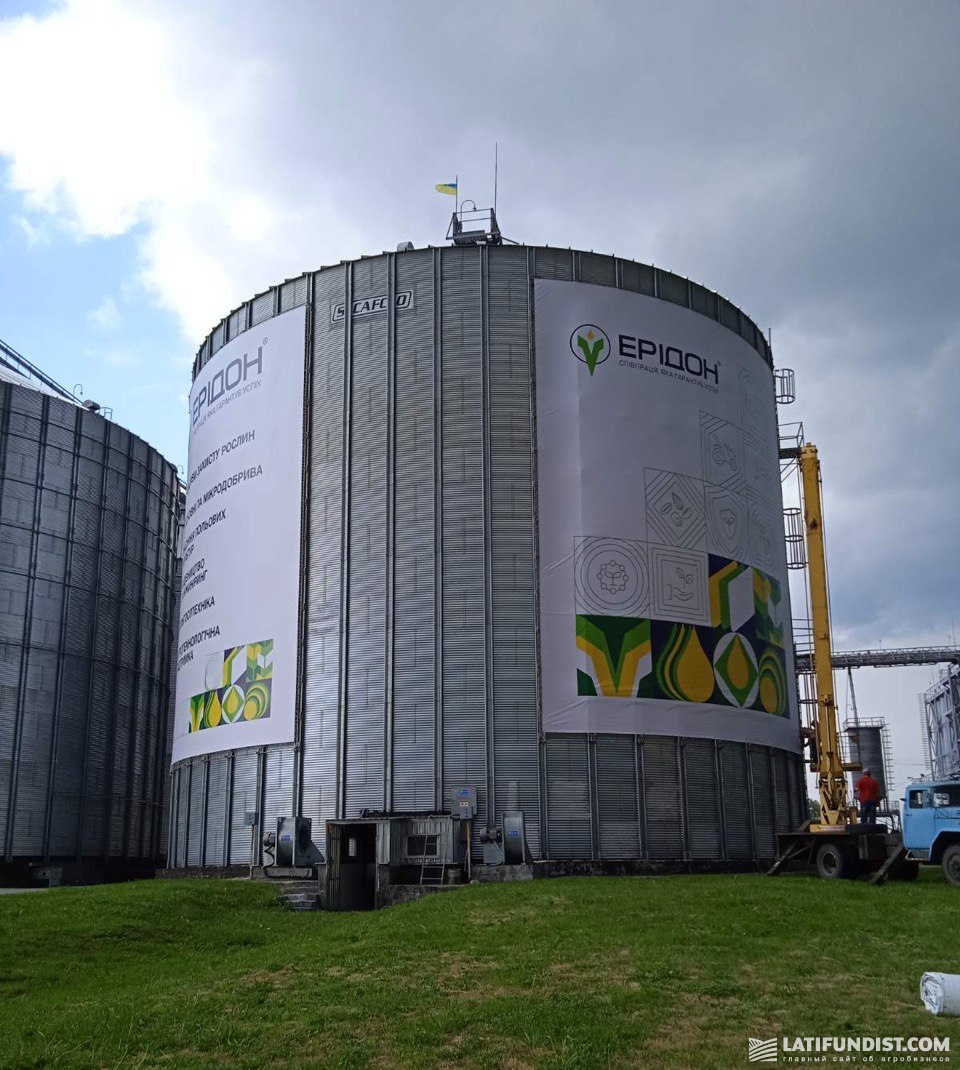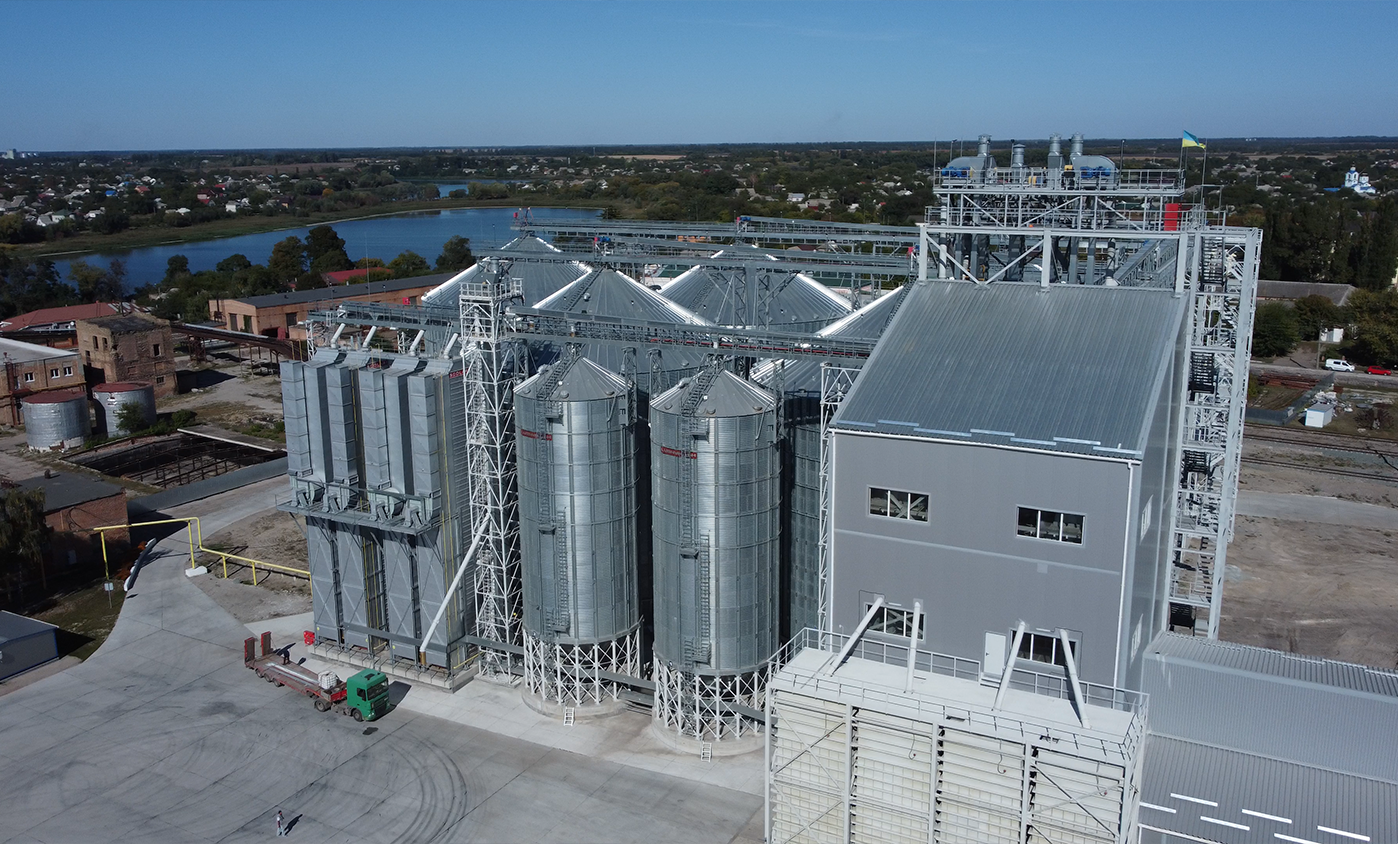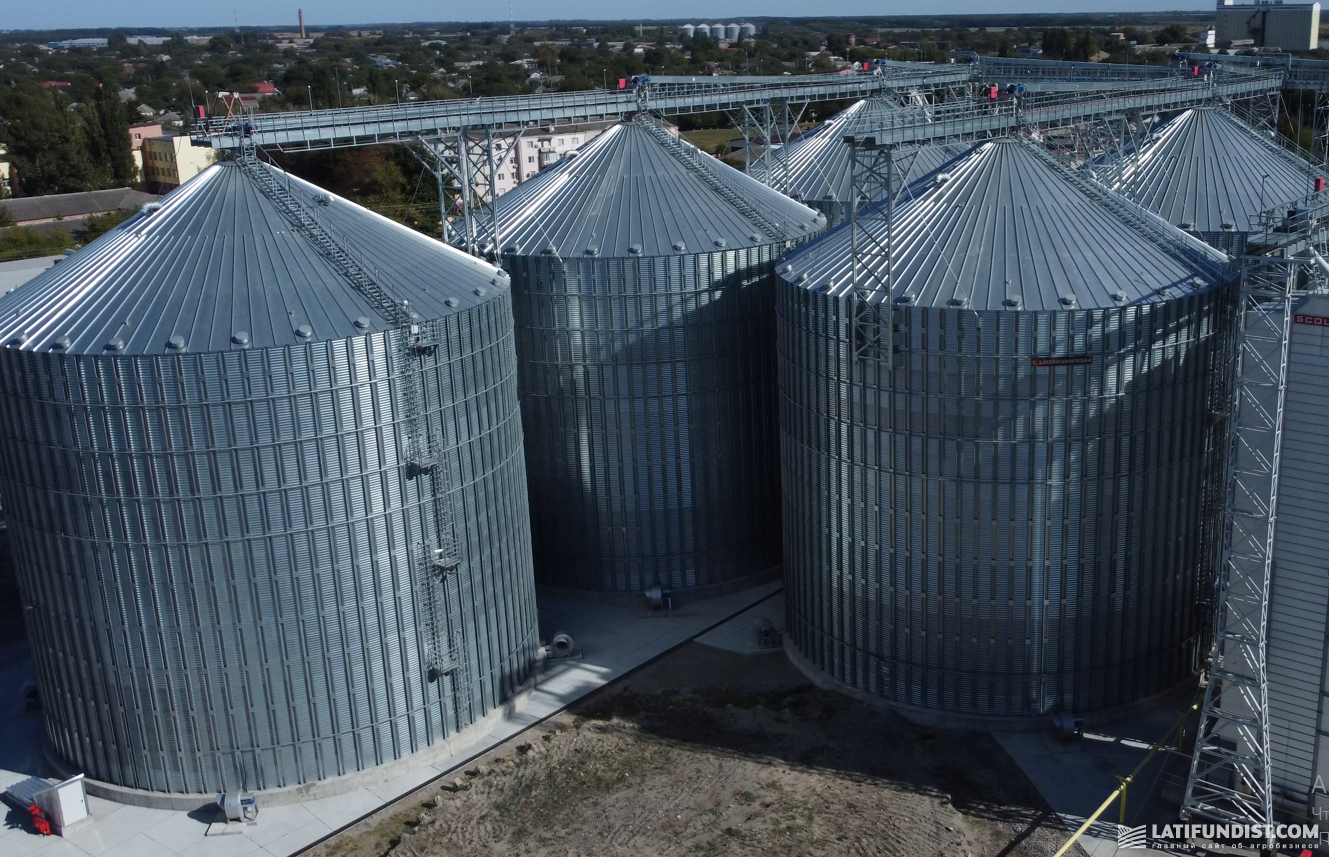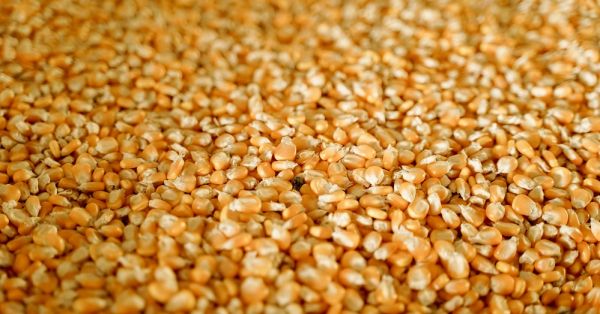Sergii Krolevets On Not Moving Abroad During the War, Investing in Production and Trading
The war makes some people cancel projects and suspend investments, while the founder of the Eridon group of companies Sergii Krolevets invests in the construction of a plant for deep processing of corn, builds a transshipment terminal on the border with Poland, invests in seed production and continues to develop livestock farming.
We had a talk with Sergii Viktorovych and found out what prompted the company to make such large-scale investments in wartime and how they had to convince the Chinese project partners to come to Ukraine and help with the construction of a plant for the deep processing of corn. He reasoned what products are planned to be produced and to which markets to be sold, why the company had to open a representative office in Poland, and where they sell grain now. Besides, we spoke about the relations with Syngenta and the future of Ukrainian distribution.
Ukraine is behind Europe in processing
Latifundist.com: You have stayed in Ukraine since the beginning of the full-scale invasion. Have you considered leaving?
Sergii Krolevets: It has never even occurred to me that I could leave Ukraine and run my business from Europe.
We do our job and help the economy in such a challenging time. After all, if not us, then who? So neither my managers nor I had any intention to move abroad during the past seven months.
We visit enterprises and talk to people. It gives them confidence in the future — the management is here, which means everything will be fine.
Latifundist.com: After the tragic death of Oleksiy Vadaturskyi, there was talk that the russians might be hunting big business. You have no security with you. Why is that?
Sergii Krolevets: I personally knew Oleksiy Opanasovych. I often met and communicated with him. It is a tragedy that this happened. He was a strong leader and businessman. He did a lot for Ukraine and for his company.
I have heard such views too. But I do not understand businessmen who are guarded. Whom to be guarded from? This is how I see security around a person: this person either has debts or has stolen something. This is not right. And I do not like it when you come to an event and you see 40% of businessmen and 60% of security guards. It is not clear with whom you meet.
Latifundist.com: Your company is constructing a plant for deep processing of corn when the country is under martial law and many have frozen all investment projects. What encouraged you to move forward with this project?
Sergii Krolevets: For the economy of the enterprise engaged in crop production to work, and the economy of Ukraine as a whole, deep processing is needed. This is beneficial for the company, for it receives a value-added product that can be marketed effectively.
Before launching this project, we visited many processing plants in Europe, particularly in Poland. Many such plants have been built in this country over the past 20 years. We visited a plant that processes 1,700 tons of corn per day and produces 60-70 thou. decaliters of alcohol per day (1 decaliter equals 10 liters – ed.). And now let's compare it with Ukraine. Our distilleries can process 50-100 tons of corn and produce 2-4 thou. decaliters per day. Imagine a distillery that processes 1,700 tons of corn! This is as much as our 34 distilleries!
Sadly, Ukraine is far behind in processing. For some reason, everyone wants to make money on trade. But we need to invest in processing and build new plants.
Latifundist.com: What do you think was holding back Ukrainian business to invest in the deep processing of corn? Is it because it is a big investment that pays off for a long time?
Sergii Krolevets: Perhaps, this is what is holding back. I had a great desire to build a modern plant and was looking for a technology for the deep processing of corn for lysine production.
As for the large investments, it is true. Their payback may take 7-10 years. Currently, there is no such production in Ukraine like we are building.
Latifundist.com: As far as we know, you started the construction of the plant last year. At what stage is the construction now?
Sergii Krolevets: Yes, on April 29 last year, we received permission to build the Ukrstarch plant. But the construction works were stalled by the COVID-19 epidemic. And then a full-scale invasion began, and we had to freeze all work on the site for a month. In April this year, they were resumed, and now the plant is 50-60% complete. For production, we use only high-quality stainless steel, which was purchased abroad. Fermenters and some other equipment were brought from China. All other metal and concrete are Ukrainian-made.
Next year we will launch the laboratory. It is about ready. This month we are bringing the equipment there. In such production, the laboratory is launched before anything else, because almost all the processes, that take place at the plant, will occur in it. And by the end of 2023, we plan to enter the market with our product.
Latifundist.com: A Chinese company is a minority shareholder in this project. Does it provide you with technology?
Sergii Krolevets: That is right.
The Chinese partner, who is in charge of the production technology, has a minor share in the project. Before entering this project, we analyzed the Chinese market for deep processing of corn, contacted various companies and finally met our current partner. We suggested building a plant in Ukraine. They agreed.
And even despite the martial law, they came to Ukraine in May and helped with the construction. It was not without persuasion, because who in a sound mind would go to a war-torn country. I assured them that at the first threat, I would personally take them to the Polish border and send them home. Now they are still somewhat surprised, but they live and work here. It's only this month that they will go home.
Latifundist.com: What is the plant's capacity and what products will it produce?
Sergii Krolevets: The capacity is about 350 tons of corn per day. L-Lysine sulfate 70%, gluten, fiber and cereal germ will be the main products. 70% will be L-Lysine sulfate, which is used in animal farming as an amino acid.
Production technology is very complex and has several main stages. It starts with the acceptance of raw materials, i.e. corn. The next stage is the production of starch milk, from which we get gluten, fiber and germ. Then the fermentation process, after which the granulation of the finished product — lysine — takes place.
Latifundist.com: Where does Ukraine get lysine from now?
Sergii Krolevets: World lysine production is concentrated in Asia and America. And all lysine supplied to Ukraine is made in China.
Latifundist.com: If we talk about the sale of lysine, is this product in demand in our market?
Sergii Krolevets: If we produce 100 thou. t of lysine per year, then about 50% will be supplied to the Ukrainian market. The rest will be exported to Europe. We still have some work to do. We need to prepare all the documents to be able to sell abroad. But I think multinational companies engaged in the production of mixed feed will be interested in our product.
Latifundist.com: We cannot but ask about investments in the plant and the payback of the project. You have already said that the return on investment will take a long time.
Sergii Krolevets: Now it is difficult for me to answer the question about investments and payback, as the war has affected the cost of the project.
Latifundist.com: As far as we know, you never attract credit funds in such projects. How did you come to such a philosophy?
Sergii Krolevets: All for my own. How did I come to it? One should spend less than one earns.
Latifundist.com: Have you considered bioethanol production?
Sergii Krolevets: We considered, and analyzed, but for now we stopped on lysine.
Latifundist.com: What about other projects?
Sergii Krolevets: We are building a corn and sunflower seed plant called Limeri. We have extensive experience in growing seed material for international seed suppliers. So now we will be able to offer them a comprehensive seed processing service at the new generation plant. To load it at full capacity, we invest in the expansion of irrigation. Last year, the irrigated land was increased by 1,500 ha and this is just the beginning.
We have built a modern office with a workshop in one of our key agricultural enterprises, for it is important to ensure comfort for people and centralize the management of the growing branch of agricultural production.
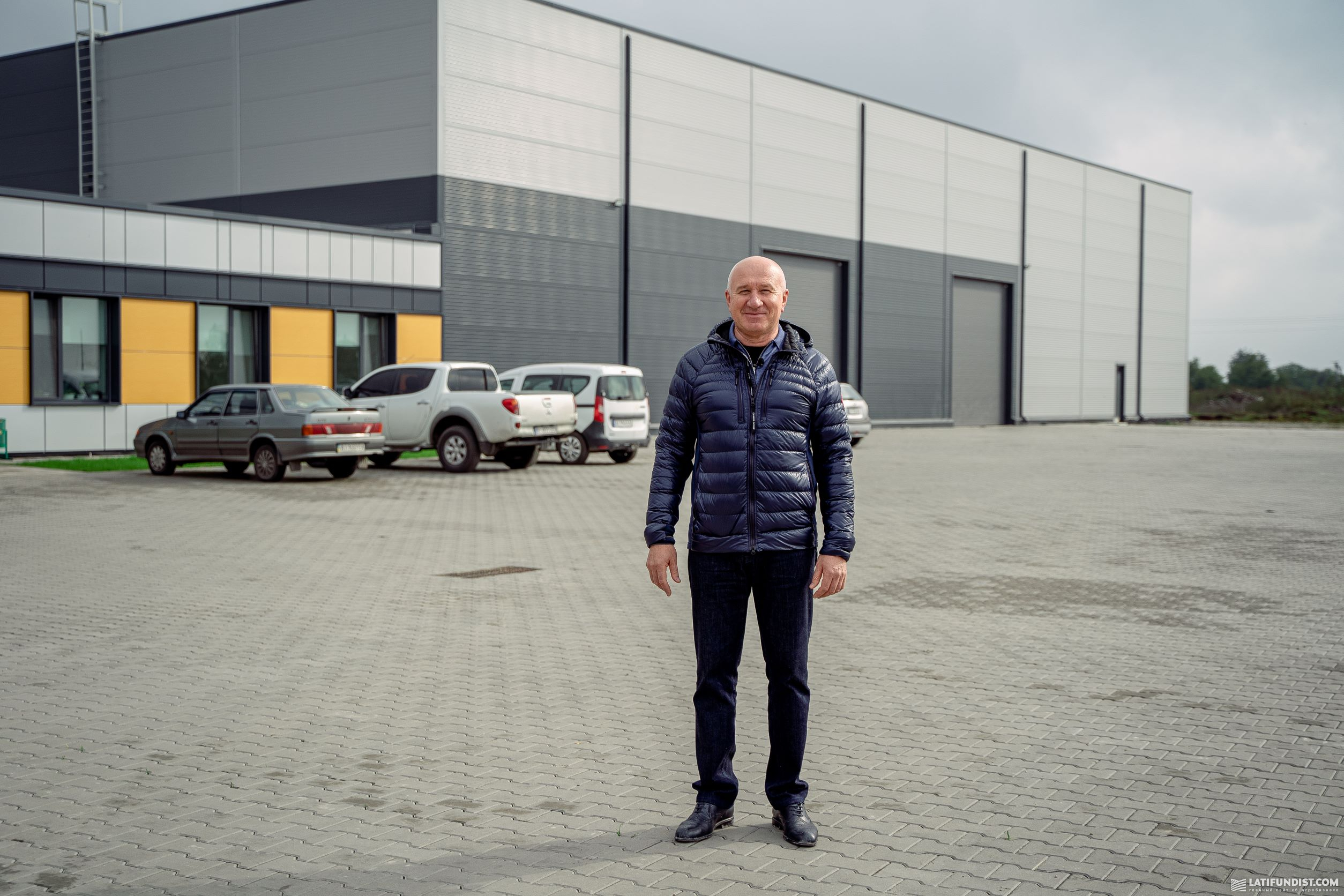
Latifundist.com: We know that in 2021 you put into operation the second phase of a dairy farm equipped with robots by Lely.
Sergii Krolevets: We did. We opened the first one in the village of Pochuyky, Zhytomyr region, based at the farm "Ukraine". Another one was built at the farm of the PE "Eurosem", and it was launched in late February this year. Now we are building another modern cowshed.
Latifundist.com: Have you focused only on the dairy segment or do you have other projects in livestock farming?
Sergii Krolevets: In 2019, we opened a livestock complex for raising and fattening bulls. Today, the breeding stock is already 2,700 head, and the total number of beef cattle is 5,000 heads. We produce the main meat breeds: Angus, Limousin, Charolais and Hereford. We give preference to Angus. Our bulls graze on pastures, the area of which has already reached 1,500 ha.
We continue to develop this direction: we are constructing another building for housing and fattening of bulls.
Latifundist.com: When selling bulls, are you focused on export, and if so, to which countries?
Sergii Krolevets: Today we do not have direct export, we work through an intermediary who exports further to Arabic countries.
Unfortunately, the European market is not yet open for live animals. There are many regulations in the [Ukrainian] legislation that should be harmonized with the European Union.
Therefore, we are considering creating our own slaughtering facilities.
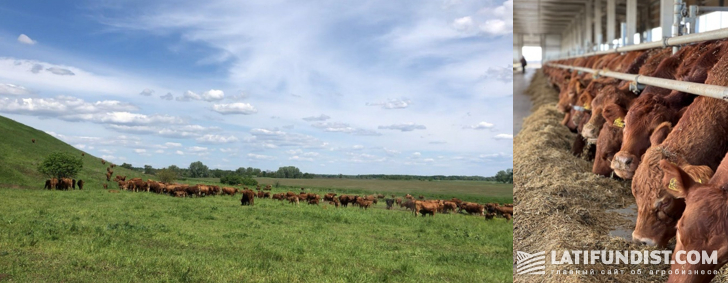
On trading, construction of 'dry ports' and opening a representative office in Poland
Latifundist.com: This year the company started exporting grain. What drove this decision?
Sergii Krolevets: After February 24, we were all in shock and at first did not understand how to act right. Of course, we came through a lot in the 90s of past century, but the war made us think differently.
When the full-scale invasion broke out, we were on our own. In warehouses, there was about 200 thou. t of corn grown by our farms. It had to be sold somewhere. The ports were closed. We had no choice but to start selling it ourselves.
Since April, I started to study how to deliver cargoes by rail to Poland, and from there to European ports or other European countries.
Since then, we have done a lot. We spent plenty of time in Poland, studied, and analyzed the market. So now we rent a railway station in Poland, transship grain there. We send it across Europe to corn and wheat processors. We have also started the construction of a terminal on the Kovel-Helm line.
Latifundist.com: So it will be a dry port?
Sergii Krolevets: Yes, and I hope that in the spring of 2023 this terminal will start working. At the same time, we are considering two more transshipment facilities on the Mostiska-Medica line and the possibility of transshipment on the Chop-Uzhhorod line. Probably, we will build terminals there as well.
It is not an easy thing. Everything that was built before near the railway did not work as it should. And we had no use for it. After all, few people exported grain via the western regions of Ukraine — almost all exports were done through ports. So now, a businessman who wants to sell his products invests in the development of infrastructure.
You may think that it is not easy in the conditions of martial law. And you will be right. But we have no other options. Our plan is to ship at least 50 thou. t of grain per month from the stations where we work in the coming months. But this is not enough, we need at least 100 thou. t per month. So far, we cannot do more.
Latifundist.com: We were told higher activity of Ukrainian farmers drove the prices for rent and purchase of elevators in Europe to sky-high levels. Moreover, the infrastructure there is far from ideal, and they are not worth the investment.
Sergii Krolevets: Nobody was expecting us there. In Poland, for example, there is no such infrastructure as we have, when there is an elevator by the railway. Their elevator business is built differently. Therefore, the prices are different. Prices for transshipment there have increased significantly, but there is no other way out — we need to work.
Latifundist.com: What impelled you to open a representative office in Poland?
Sergii Krolevets: Polish legislation did. We opened a representative office of "Eridon" in Poland to sell grain to European processors as we had troubles with transit. We hired people. Some of our employees were there from the beginning of the full-scale invasion and went to work in the Polish office.
Latifundist.com: Have you considered the port of Gdynia? We have recently been there, and we were told that it is not loaded with Ukrainian grain.
Sergii Krolevets: We visited Polish ports, including the port of Gdynia, and looked at their elevators. Besides, we have a partner in Gdynia, but today we do not send products there. It mainly travels to European grain processing plants.
Latifundist.com: Do you deliver grain to Poland by grain trucks?
Sergii Krolevets: We had more than 50 trucks before the full-scale invasion. Now we have increased the fleet to 65. Roughly 80% of them transport grain abroad. We have registered all the documents for transportation that are required in the EU, and we are working.
Latifundist.com: How has the situation with queues changed at the border?
Sergii Krolevets: Now it takes 24 hours to cross the border. What Poland has done at the border is a huge step forward. It has become much easier to draw up T1 (transit declaration – ed.) and the phytosanitary certificate is also not mandatory today. This has reduced the time of customs clearance. So, queues that were up to 30 km long until recently are now much shorter.
Latifundist.com: By the way, are there any complaints from Polish partners regarding the huge flow of Ukrainian grain causing domestic prices to fall?
Sergii Krolevets: No, we have not heard any complaints from them. Perhaps, indeed, the flow of Ukrainian grain affects prices. But Poland used to buy grain, if not from Ukraine, then from other countries, and therefore has a well-developed processing system. They also have a well-developed market of feed mills. They then sell the feed not only in Poland but also in other EU countries.
Latifundist.com: Haven't foreign counterparties tried to discount prices, taking advantage of the complex logistics situation in Ukraine?
Sergii Krolevets: If you deal with an intermediary, he will always offer a lower price. If you communicate with a European processor, he will put the right price. As simple as that.
Distribution in Ukraine is poorly arranged
Latifundist.com: Speaking about distribution, large suppliers keep entering the market for direct sales. And there are concerns whether it will benefit Ukrainian farmers. What's your opinion about this?
Sergii Krolevets: Eridon has been working with multinational companies as a distributor for 25 years. They always stressed that we are partners and should develop warehouse infrastructure to sell their products profitably. But at one point, for example, Pioneer simply refused to work with us, having switched to direct sales.
This year, Syngenta, a company with whom we worked for more than 20 years, refused to cooperate with us in plant protection products as the sales system was changed.
This raises a logical question: why do we invest in the development of infrastructure in all regions if we will not be able to sell something then? We have always built our infrastructure to be closer to the farmer — closer to the farms. It is about a wide range of products available, timely delivery, the capacity to store the purchased products, and people qualified to quickly and efficiently perform all related operations and provide professional advice.
Latifundist.com: When did Syngenta inform you that it was terminating cooperation with the company?
Sergii Krolevets: Six weeks ago. In 2023, we planned to sell $65 million worth of plant protection products. But the company withdrew from cooperation. It is not done without a year or two warning. It seems to me that's not a partnership.
Latifundist.com: Market talks were that Eridon had a rather large share of distribution in Syngenta and that dependence on one distributor is a certain risk for the company.
Sergii Krolevets: They define the commercial policy for distribution, not we. That is, we work separately, develop distribution, and follow the plan. They want to develop with us, and we develop them. If your other distributor is not developing, then please help him. But they do not do it. They reach out to the end consumer, rather than help the distributor to develop.
As I see it, distribution in Ukraine is arranged poorly, primarily with regard to the companies' approach. They dictate the conditions for the distributor: who to give loans to and who not to, with whom to work and with whom not to.
We do business with them fairly and fulfill all our obligations, both in terms of sales volumes and payments.
Latifundist.com: As one of the largest distributors in Ukraine, you have many other suppliers. And we know that for three years Eridon has been selling seeds grown in the company's fields in partnership with IFAGRI.
Sergii Krolevets: As I have mentioned, we grow corn and sunflower seeds not only for IFAGRI, but also for other international suppliers. That is why we are increasing our capacity in seed production. As for IFAGRI, through joint efforts with the supplier, this business is successfully developing. This brand covers 10-15% of Eridon's corn seed portfolio.
Cooperation with IFAGRI is also to some extent a forced step. We have found a partner in Europe (IFAGRI is a British company – ed.), with whom we are rapidly developing both in the direction of plant protection products and seed production. They have the necessary expertise in production, which complemented our knowledge and now helps to best meet the needs of Ukrainian producers.
Latifundist.com: Do you think the fall of distributors may again occur in the market, as it was with Imperia Agro or Trade House Nasinnya?
Sergii Krolevets: I do not think so, but it all depends on many factors: the state, the attitude of the owners or the CEO to the development and strategy of the company. We invest, build, develop and want to be present in the Ukrainian market. And our employees help us to develop. And I want to thank them for their sensible attitude to work, to the company and to Ukraine in general.
Latifundist.com: What is your vision of the future of distribution?
Sergii Krolevets: As a very good and promising business, which should be present in Ukraine. Distribution has been and will be.
Latifundist.com: There were several attempts to bring distribution online, various marketplaces were launched. Why hasn't it worked so far?
Sergii Krolevets: Such a project will never work the way we would like it to. The human factor plays an important role here. People decide everything.
Delayed payments are the biggest problem for agribusiness
Latifundist.com: Have you suspended commodity lending since February 24?
Sergii Krolevets: We did lend to agrarians this spring. But we divided Ukraine into risk zones. Those producers who work in the western and central regions were credited. Now they are already paying us back.
Latifundist.com: Do they often call and ask to postpone payments for old times' sake?
Sergii Krolevets: When we loan agricultural producers in spring, every autumn they tell us: "You know, I am not happy with the price of corn. Can you wait another three months?" But this is not right. We were flexible with you, helped you with the sowing season, and in autumn we have to wait because someone wants to sell the corn at a price at which we will not sell it or sell it with a loss.
Unfortunately, such situations are not uncommon.
Late payments are the biggest problem in Ukrainian agribusiness. But not all are like that. There are farmers who always pay on time because they understand what a partnership is.
Latifundist.com: It is interesting. It is not uncommon for farmers to resort to the argument saying, "We have known each other for so many years, let's come to a conceptual agreement."
Sergii Krolevets: 10 years ago we solved all these issues verbally. And we never went to court. Today, if a person does not fulfill his obligations on time, the legal department deals with the case so that we do not spend a lot of time on negotiations. And it does not hesitate and goes right to the court. This is when the relationship with partners changes. But there are cases when producers are understanding and pay their debts, move on.
On the team and occupied assets
Latifundist.com: The company is represented all over Ukraine. Where do you have the most assets under occupation?
Sergii Krolevets: We have assets in Kherson, Kakhovka, Tokmak, Berdyansk and Svatove, which are currently under temporary occupation. These are warehouses, office premises and products. Last year we repaired the office in Svatove, and now it was destroyed by a direct hit because the occupiers lived there.
The assets in Balakliya and Shevchenkove, which were freed in September, were also damaged. Immediately after that, our managers went there to see what was left of the warehouse. According to the video they sent us, 95% of the warehouse was looted. Nevertheless, we are already resuming work there — we need to bring back life to the de-occupied territories. Chernihiv office was also damaged. It was shelled, russians lived there. There were damages in Kryvyi Rih, Mykolaiv, Zaporizhzhya, Kropyvnytskyi.
Latifundist.com: We know that you are constantly developing your office and warehouse network. Has the war stopped these processes?
Sergii Krolevets: No, it hasn't, now we are building a completely new office and warehouse complex on the bypass road outside Zhytomyr. We continue the construction of the 2nd phase of the warehouse in Novomoskovsk, Dnipropetrovsk region.
Latifundist.com: What was the morning of February 24 for you?
Sergii Krolevets: It was an interesting morning. On February 24, we had to hold a meeting of the western region in Lviv. The night before, we gathered all the leaders and managers there. In the morning we had to gather to sum up the results for 2021. And already at 5 a.m., we were woken up by planes flying and the announcement that russia had attacked Ukraine. Already at 7 a.m. I announced that everyone should go to their families. We will solve work issues online. Together with managers we got we drove to Kyiv.
It was emotionally hard to watch everyone leaving Kyiv and us going there. I remember thinking whether I was doing the right thing because the line was enormous. The next day, at 6 a.m., the managers and I were in the office. We decided not to stop and continue working, making decisions on the situation.
Latifundist.com: How did you choose to protect your assets?
Sergii Krolevets: At first, all vehicles were parked near the central office. All warehouses were closed. 4 days passed, and the situation only worsened. Then we decided that it was senseless to keep all the equipment in one place. And we had to deal with the goods, how to transport them to a safe place. And then we found that the drivers refused to go anywhere. We had to persuade them, explain that the products must be taken to the western region.
On top of that, we still had 200 thou. t of corn at our elevators and grain warehouses. We arranged a rent of Krasnyansky elevator and moved part of the grain there. But I could not help thinking that maybe we shouldn't take out all of it and leave some part. There existed no right decision back then.
Latifundist.com: Regarding the staff, many of your employees have remained in the occupation since the first days of the full-scale invasion, haven't they?
Sergii Krolevets: They have. Many of our employees remained in Luhansk, Kherson, Zaporizhzhya and Donetsk regions. We constantly communicated with them about their evacuation and the situation with the goods that remained in the warehouses. Almost 95% of our employees left the temporarily occupied territories. For example, to leave the Luhansk region, they had to travel through Russia, the Baltic States and Poland, arrive in Lviv, and from there to Kyiv. We employed all of them in our other divisions.
As for the employees of the central office, after February 24, some of them moved to the western regions. We opened a small office there for about a month.
In fact, the team performed very well during these 7 months of war. Even I was impressed by some of the actions of our executives and managers. All managers stayed in place, no one left, everyone worked. Yes, it was not easy, there were many challenges, fear, but everyone worked. Now more than 100 employees of Eridon Group are in the Armed Forces of Ukraine.
Latifundist.com: Your son now heads the distribution department. Do you ever disagree with his decisions?
Sergii Krolevets: It certainly happens. But I try not to interfere in his work, although I see that I would do otherwise. But this is his decision. The main thing is that he and his team are moving forward, developing the company. This is a young generation that takes business in a different way.
Latifundist.com: What do you regret?
Sergii Krolevets: There were mistakes, but this is life and no one has lived it doing none.
Latifundist.com: What would you like to wish our readers?
Sergii Krolevets: Do not give up and believe in the Armed Forces!
Latifundist.com: Thank you for the interesting conversation!
Sergii Krolevets: Thank you!
Kostiantyn Tkachenko, Natalia Rodak, Latifundist.com
